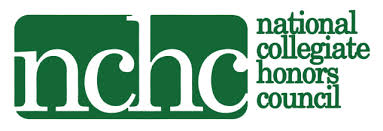Course Description
This course will offer students the opportunity to engage in an interdisciplinary social studies experience addressing diverse human justice challenges which continue to threaten civil rights and democracy in the United States and around the world. While applying the tools of critical thinking, literary theory, and ethical theory, students will analyze, evaluate, and interpret literary excerpts - authored by important American literary luminaries - that continue to initiate emotional and intellectual empathy for the following social issues: protecting earth's ecological systems (Ralph W. Emerson), human slavery and family separation (Harriet B. Stowe), migrant rights and occupational justice (Upton Sinclair), women's identity and societal opportunities (Betty Friedan), racial justice in America & critical race theory (Martin Luther King), war and military veterans wellbeing (John F. Kerry), Hispanic/LatinX culture and the power of literature (Rudolfo Anaya), animal rights and their flourishing (Martha Nussbaum), LGBTQ+ experience and wellbeing (Eric Markus), white privilege and the politics of division (Tim Wise), and artificial intelligence and the threat to human creativity (Michael Bashkar). Students will apply critical thinking theory, literary theory, and ethical theory as lenses to each literary excerpt explored throughout the course; using these theories, students will learn how to craft and convey, through writing assignments, a reasoned and passionate response to each of the course’s social issues. Students' final oral presentation assignment should be designed to inform society on how to continue eliminating the social injustice inherent in one particular issue explored in the course; however, students also may choose to pursue a social issue not formally addressed in the course to inform the class and complete the final oral presentation requirement. During the course, student groups will be formed to resource, question, and improve each other’s ideas and writing assignments. All students will be expected to dialogue respectfully, critically, and with an open mind about others' ideas within the course.Texts
It is my intention to create a course reader containing excerpts from the following publications: Ralph Waldo Emerson's Nature Essay, Harriet Beecher Stowe's Uncle Tom's Cabin, Upton Sinclair's The Jungle, Betty Friedan's Feminine Mystique, Martin Luther King's Letter from Birmingham Jail, Sen. John F. Kerry's Winter Soldier US Senate Testimony on the Viet Nam War, Rudolfo Anaya's Zimmermann Library commemoration lecture The Magic of Words, Marth Nussbaum's Justice for Animals: Our Collective Responsibility, Eric Marcus's Making History: The Struggle for for Gay and Lesbian Equal Rights, and Mustafa Suleyman and Michael Bashkar's The Coming Wave: Technology, Power, and the Twenty-first Century's Greatest Dilemma. The instructor also will provide all students a free hard or e-version copy of the book entitled, Liberal Arts and Sciences: Thinking Critically, Creatively, and Ethically; this professionally reviewed publication is a companion textbook that will guide initial and on-going democratic dialogue course requirements. Most importantly, this book teaches learners how to apply the intellectual and emotional dimensions of critical thinking and how to engage in democratic dialogue when discussing controversial social justice issues.Requirements
There are social and academic requirements for students to fulfill during the course. First, all students will be expected to dialogue respectfully, critically, and engage with an open mind about others' ideas during the course. Second, brief reflection papers will be required subsequent to each class session, ideally using a UNM learning management system (Canvas); these reflection papers will be used to build their major course writing assignment. Moreover, in order to initiate, or develop further, students' voices (intellectual and emotional confidence), regular in-class and final oral presentations, and Q&A opportunities, will be required of each learner.About the Instructor(s):
Christopher Chaves
Christopher A. Ulloa Chaves, ED.D. earned a doctoral degree from the University of Southern California; his graduate education focused on English Studies & Math, and the integration of literature and ethics. He’s a published member of The Ralph Waldo Emerson Society and works for The University of New Mexico, College of Arts & Sciences.


Social Media
For news, information, prizes and more fun stuff follow us on our social media!
Honors College Resources